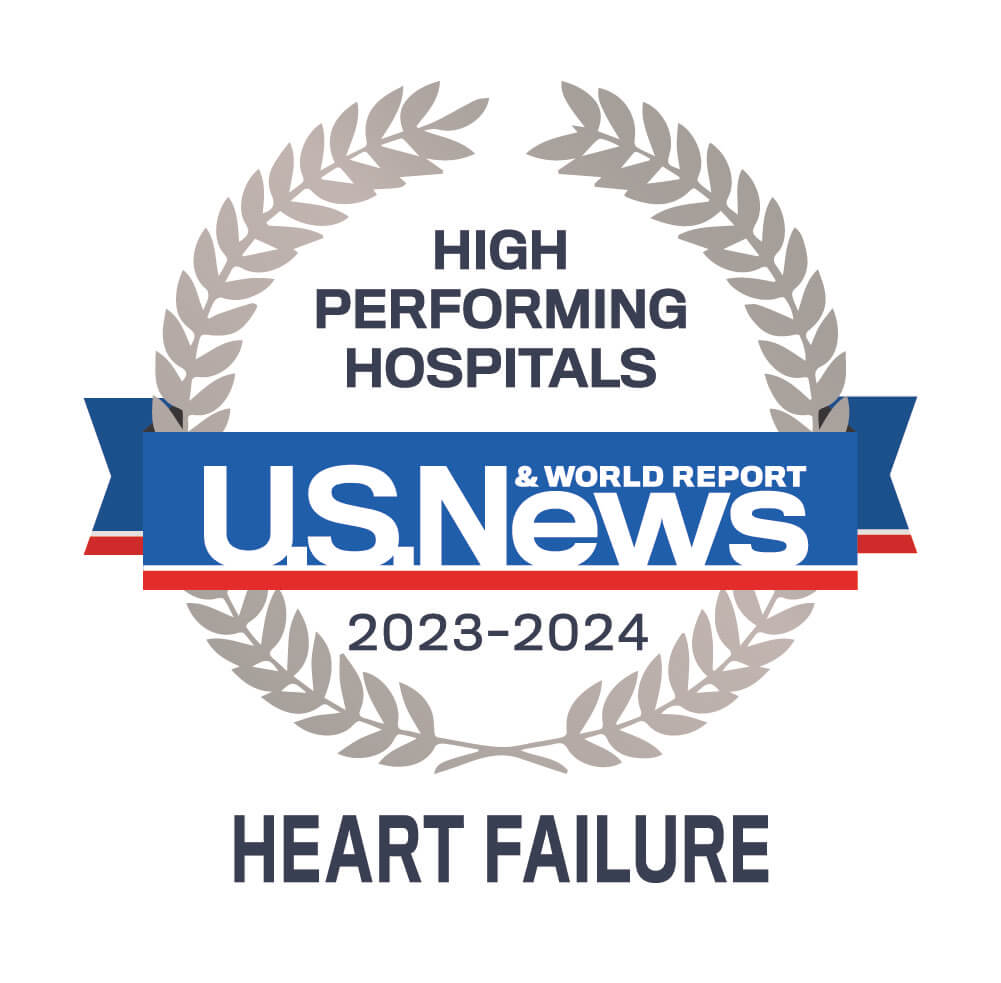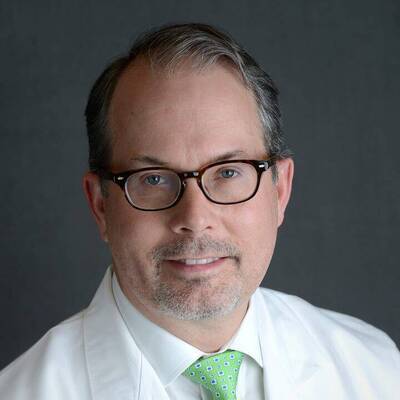Advanced Heart Failure, Transplant and Mechanical Circulatory Support
We’re embracing the latest technologies and developing new approaches to improve outcomes and set a new standard for other centers to follow.
Recent Highlights
Transplant and Mechanical Circulatory Support (MCS)
In 2023, we performed the 500th VAD implant and our 750th heart transplant since our Advanced Heart Failure Program launched in 1995.
Expanded outpatient evaluations: We expanded access to our efficient outpatient advanced heart therapy referral process. Patients referred for transplant or durable MCS complete all required consults, testing and imaging in a coordinated 3-day schedule. This reduces barriers to therapy evaluation, in part by making care efficient and convenient for patients, and ensures patients receive timely care.
Advanced Heart Failure
Bringing remote monitoring to more patients: We expanded our comprehensive Heart Failure Remote Monitoring Program to more than 2,500 patients. This program leverages already implanted devices with heart failure diagnostic capabilities to elevate care for high-risk patients.
Multidisciplinary care for pulmonary hypertension patients: Sanger’s Pulmonary Hypertension Clinic has managed patients with elevated pulmonary artery pressures for more than 25 years. In 2023, the advanced heart failure team joined forces with our pulmonary colleagues to establish a multidisciplinary clinic for patients with elevated pulmonary artery pressures. Though the causes of pulmonary hypertension vary, the etiology typically involves cardiac, pulmonary or systemic disorders that affect the pulmonary vasculature. A team-based, multidisciplinary approach offers the best opportunity for prompt diagnosis and effective treatment.
Temporary Mechanical Circulatory Support / Cardiogenic Shock
Cardiogenic shock early activation and local ECMO cannulation: As part of Sanger’s Center for Temporary Mechanical Circulatory Support (TMCS), we developed multidisciplinary cardiogenic shock teams at our tertiary/ quaternary care hospitals. These teams include an advanced heart failure cardiologist, interventionalist, intensivist and cardiothoracic surgeon. Providers who identify a patient in potential cardiogenic shock can activate the local cardiogenic shock team via a central phone number. These activations include CICU nurse managers, an ECMO charge nurse, the perfusion team, bed management and medical transport services. The team helps efficiently determine the need for TMCS and plans for transfer if necessary. Patients who require VA ECMO support can undergo cannulation locally and then be immediately transferred to our quaternary care hospital. This has helped reduce the time to lifesaving therapy and contributed to higher survival rates.
Recognition
Pursuing Insights on Aging: Nicole Cyrille-Superville, MD, an advanced heart failure physician was selected to participate in the highly competitive 2023 Butler-Williams Scholars Program, sponsored by the National Institute on Aging. She will join a select group of scientists and obtain unique opportunities and training with the purpose of gaining insight about research on aging from numerous perspectives.
Awards
-

Atrium Health Carolinas Medical Center, Atrium Health Cabarrus and Atrium Health Pineville
-

Disease Specific Certification from The Joint Commission
-
2.8 Months
Median Time on Heart
Transplant Waitlist
Atrium Health Carolinas Medical Center
Nationally: 4 Months
Scientific Registry of Transplant Recipients (SRTR) 2023 -
14.7%
VAD
Nationally: 19.8%
Intermacs Database -
93.4%
Heart Transplant
1-Year Survival Rate
Nationally: 91.2%
Scientific Registry of Transplant Recipients (SRTR) 2023 -
14 Days
Adult Post-Heart Transplant
Length of Stay
Atrium Health Carolinas Medical Center
Nationally: 18 Days
Scientific Registry of Transplant Recipients (SRTR) 2023
-
72%
VA ECMO 24-Hour Survival Rater
Atrium Health Greater Charlotte Region
USA Adult Cardiac: 60%
Extracorporeal Life Support Organization (ELSO), 2023 -
58%
VA ECMO Survival to Discharge Rate
Atrium Health Greater Charlotte Region
USA Adult Cardiac: 45%
Extracorporeal Life Support Organization (ELSO), 2023 -

-

Innovations
Advanced Heart Failure
Additional advanced heart failure therapies: Sanger offers additional heart failure therapies, including pulmonary artery sensor monitoring and cardiac contractility modulation therapy, for patients who aren’t candidates for traditional cardiac resynchronization therapy and are failing medical management. Often, these patients aren’t quite sick enough for VAD or transplant, but have poor quality of life due to heart failure symptoms. Offering additional therapies to patients across Atrium Health Carolinas Medical Center, Atrium Health Cabarrus and Atrium Health Pineville allows us to improve the quality of life for our patients at multiple locations.
Transplant and Mechanical Circulatory Support (MCS)
Expanding the access to donor organs: In the summer of 2022, we began a donation after circulatory death (DCD) program using the TransMedics Organ Care System. This technology allows us to expand our donor pool and provide more opportunities for our patients to be matched with a suitable organ, faster than ever. In 2023, we offered lifesaving transplantation using DCD organs to 35 patients. This equates to 38% of our adult heart transplant volume. Pharmacy-led titration of guidelinedirected medical therapies: Optimal medical therapy is crucial to decrease heart failure symptoms and mortality, but it can be complex and difficult to achieve. Fortunately, heart failure medication therapies have expanded significantly over the last 5 to 7 years. At Sanger, the most complex heart failure patients are now being referred to an experienced heart failure pharmacist to ensure therapies are optimized in a timely manner. These pharmacists also help address concerns around medication side effects and cost.
Improving cardiogenic shock outcomes: Cardiogenic shock is the most fulminant form of heart failure and has a very high mortality rate. Sanger has improved outcomes for this critically ill patient population by developing formalized management pathways and a team-based care approach. With a focus on earlier identification, we have been able to safely deploy the latest technology. This allows us to support failing hearts while facilitating recovery, or to bridge patients to VAD or transplant.
Rehab HFpEF: Physical Rehabilitation for Older Patients with Acute Heart Failure with Preserved Ejection Fraction
HeartShare: Combining Omics, Deep Phenotyping, and Electronic Health Records for Heart Failure Subtypes and Treatment Targets
Met-pEF: Metformin for Older Patients with Heart Failure with Preserved Ejection Fraction
Leadership
-

Joseph Mishkin, MD
Medical Director, Advanced Heart Failure and Transplant Cardiology
-

Eric Skipper, MD
Surgical Director, Transplant / VAD Services


